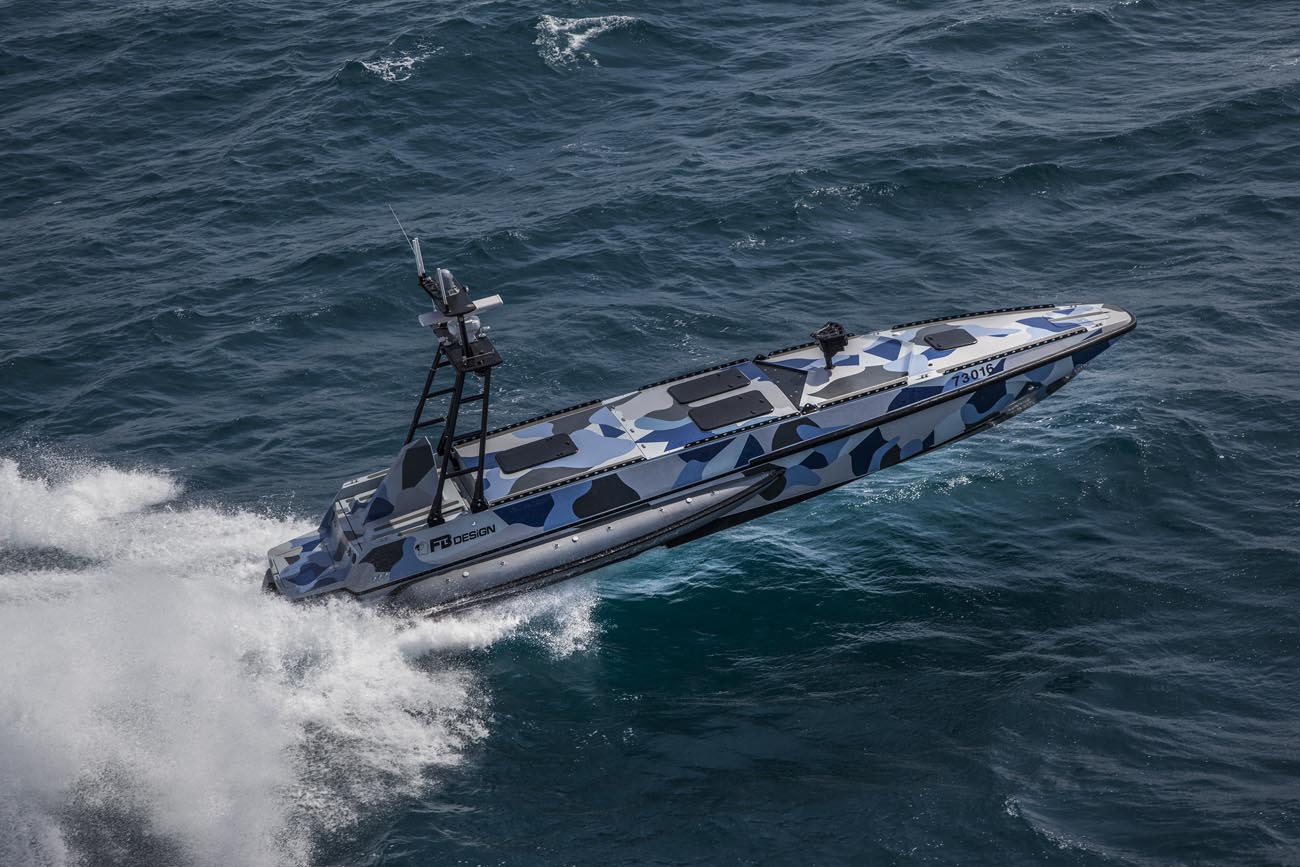An unmanned surface vehicle (USV) is a watercraft that functions on the surface of the water without a human crew aboard. It comes equipped with a wide range of sensors to facilitate remote control of the vehicle by operators on land and other vessels. Unmanned surface vehicles have a wide range of end uses in various sectors, including military, research, and commerce. Along with providing a cost-effective way to do hydrographic surveys, unmanned surface vehicles play a crucial role in military operations.
In this blog post, we list and provide a comprehensive overview of the top five players that are driving the growth of the unmanned surface vehicle market. Stick with us!
#1. Atlas Elektronik GmbH
Founded: 1902
Headquarters: Bremen, Germany
Atlas Elektronik GmbH is a marine technology and business enterprise with German roots and a global footprint. It has a highly skilled workforce that specializes in the fields of hydroacoustic, sensor engineering, and information technology. Atlas Elektronik’s client base ranges across both the naval and civilian sectors.
The firm is primarily involved in the development of integrated sonar systems for submarines and heavyweight torpedoes. Its other products include submarine systems, surface combatant systems, mine warfare systems, maritime security systems, and marine communication systems. Atlas Elektronik also caters to the unmanned surface vehicle industry with its unmanned vehicle products.
#2. ECA Group
Founded: 1936
Headquarters: La Garde, France
The ECA Group is one of the leading unmanned surface vehicle market key players. It has expertise in designing and developing drones that operate on water and in the air. Also, it develops integrated systems that seamlessly adapt to the needs of the defense, maritime, oil, and nuclear power sectors.
Other offerings by the ECA Group are its training simulator for missions using the latest technologies. With its vast expertise in drones and robots, the ECA Group offers a training simulation environment to train sailors, operators, and pilots.
#3. Elbit Systems
Founded: 1966
Headquarters: Haifa, Israel
Elbit Systems is an Israel-based aerospace and defense company that’s engaged in various defense, homeland security, and commercial programs. It designs and develops a wide range of land, naval, and airborne products for various sectors. Elbit Systems’ major activities include military aircraft systems, commercial aviation systems, unmanned aircraft systems, and land vehicle systems, amongst others.
Elbit Systems’ products are installed on new platforms. Besides, they also provide blanket platform modernization programs. What’s more, Elbit Systems offers a range of training and support services for the unmanned surface vehicle market and various other sectors.
#4. Fugro
Founded: 1962
Headquarters: Leidschendam, Netherlands
Fugro is a Dutch multinational firm that’s primarily focused on geotechnical, survey, and geoscience surveys. It initially started as a business that conducted surveys and soil analyses. It subsequently expanded its operations into the marine sector to cater to clients engaged in offshore oil and gas production.
Fugro’s areas of expertise include environmental services, flood management, foundation design, geological and geophysical surveys, groundwater and hydrographic surveys. Fugro’s unique selling point is that it tailors and adapts its technologies and integration skills to suit every client’s specific requirement in the unmanned surface vehicle market and other sectors.
#5. Liquid Robotics
Liquid Robotics is a US-based marine robotics company that’s a wholly owned subsidiary of The Boeing Company. The firm specializes in the design and development of Wave Glider, a wave and solar-powered USV that collects and transmits ocean data. Wave Glider draws energy from ocean currents for propulsion. As a result, it can spend weeks or even months in the ocean.
Liquid Robotics’ vehicles boast a wide range of sensor payloads, including oceanographic sensors, acoustic sensors, video cameras, and atmospheric sensors. These vehicles are used by various industries, including commercial, defense, maritime surveillance, and scientific research.
Facilitating Cost-Effective Oceanographic Research
The unmanned surface vehicle market size was USD 2.08 billion in 2022 and is expected to grow at a CAGR of 4.7%, generating an estimated revenue of USD 3.25 billion by 2032. Rising demand and necessity for ocean cleaning through unmanned vehicles are among the primary factors driving the growth of the market.

